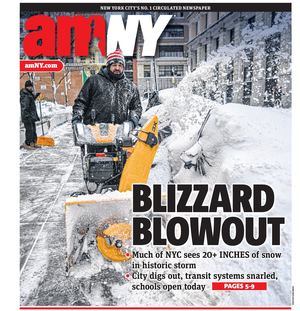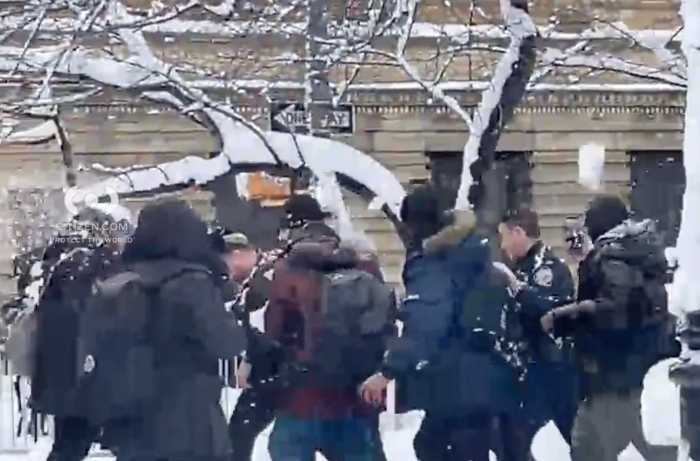A proposed settlement at the center of NYCHA’s lead paint scandal has been rejected.
U.S. District Judge William Pauley III issued an opinion Wednesday rejecting the proposed consent decree negotiated after the federal government sued the city and its public housing authority for violating lead and other housing protocols.
Pauley gave the New York City Housing Authority and prosecutors until Dec. 14 to submit paperwork outlining how they would like to proceed with the case, which the judge said covered conditions comparable to the biblical plagues in Egypt.
“This court does not reject the Proposed Consent Decree lightly. The rejection of this decree will likely delay sorely needed relief for NYCHA tenants while the parties decide whether to renegotiate, seek administrative remedies, litigate, or appeal,” Pauley wrote in his opinion and order, which highlighted his concerns about the enforcement mechanisms in the agreement.
The mayor’s office, speaking on behalf of NYCHA, said it will be responsive to the court and work with the U.S. Attorney, and emphasized its commitment to improving conditions in its public housing units.
“This decision will not affect the record investment Mayor de Blasio has dedicated to reversing decades of divestment and mismanagement of public housing,” the mayor’s office said in a statement.
Manhattan U.S. Attorney Geoffrey S. Berman said his office is reviewing the order, and will respond within the time frame set by the judge.
“The well-being of the over 400,000 NYCHA residents continues to be our paramount concern,” he said in a statement.
Attorneys representing NYCHA groups, which were permitted to file briefs weighing in on the settlement proposal, praised the judge’s decision and pushed for a stronger consent decree.
“The court’s rejection of the consent decree recognizes that this proposed deal failed on many levels — it passed the buck to a monitor sitting outside of the normal governmental processes; it was too vague; and it did not address adequately the vast needs of NYCHA’s residents or mandate any meaningful role for residents in the efforts to fix NYCHA,” they said in a statement.
After years of investigating the public housing authority, the government filed a complaint in June accusing the city of misleading the public about the scope of lead paint in its portfolio and the number of young residents with concerning blood lead levels, as well as deceiving inspectors about a slew of hazards by cutting the water supply off in areas with leaks and using mock walls to hide dilapidated areas.
Simultaneously, federal prosecutors and NYCHA announced they had negotiated a consent decree. That agreement, if approved, would have compelled the city to spend $2 billion reforming the authority under a monitor’s supervision.
Pauley highlighted in his opinion that two groups representing NYCHA tenants — the Citywide Council of Presidents and At-Risk Community Services — filed briefs formally opposing the proposed settlement. The groups argued that NYCHA tenants should have more say in the settlement. He said he heard “harrowing accounts” from scores of NYCHA’s 400,000 residents who testified before him on Sept. 26.
“Somewhat reminiscent of the biblical plagues of Egypt, these conditions include toxic lead paint, asthma-inducing mold, lack of heat, frequent elevator outages, and vermin infestations,” Pauley wrote in the memo.
After hearing from the tenants, Pauley noted in September that despite the collaborative spirit outlined in the consent decree, prosecutors said NYCHA avoided their calls or requests to meet for three weeks and independently appointed a chief compliance officer.
He even asked prosecutors if they had considered placing NYCHA in a receivership under the U.S. Department of Housing and Urban Development. Assistant United States Attorney Robert William Yalen said prosecutors decided it would be better to continue the tradition of local leadership and access to city funding.




































